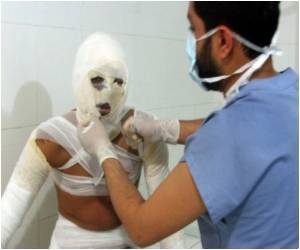Backstabbing bacterial cells that act in their own interests and do not cooperate with their infection-causing colleagues can actually reduce the severity of infection.

Bacteria work together by using a well-studied communication system called Quorum Sensing (QS).
During infection, bacteria talk to each other using QS to coordinate the release of toxins.
Researchers at the University of Nottingham have discovered that in Staphylococcus aureus infections, bacteria defective in QS can benefit from 'opting out' of toxin production.
By doing so, they can invest more energy in reproducing - whilst taking advantage of the nutrient-rich infection that is maintained by their neighbours.
By looking after themselves in this way, QS-deficient bacteria are quickly able to outnumber other bacteria that are busy producing toxins.
"This opens up the interesting possibility of using these uncooperative bacteria to treat infection," said Eric Pollitt who is presenting the study.
"We found that the QS-deficient bacteria could not only outgrow normal bacteria in the same population, but that they could also invade other cooperating populations to reduce the severity of infection," explained Pollitt.
"This means that we could potentially isolate QS-deficient bacteria and use them to treat clinical S. aureus infections," he added.
Source-ANI
 MEDINDIA
MEDINDIA




 Email
Email







